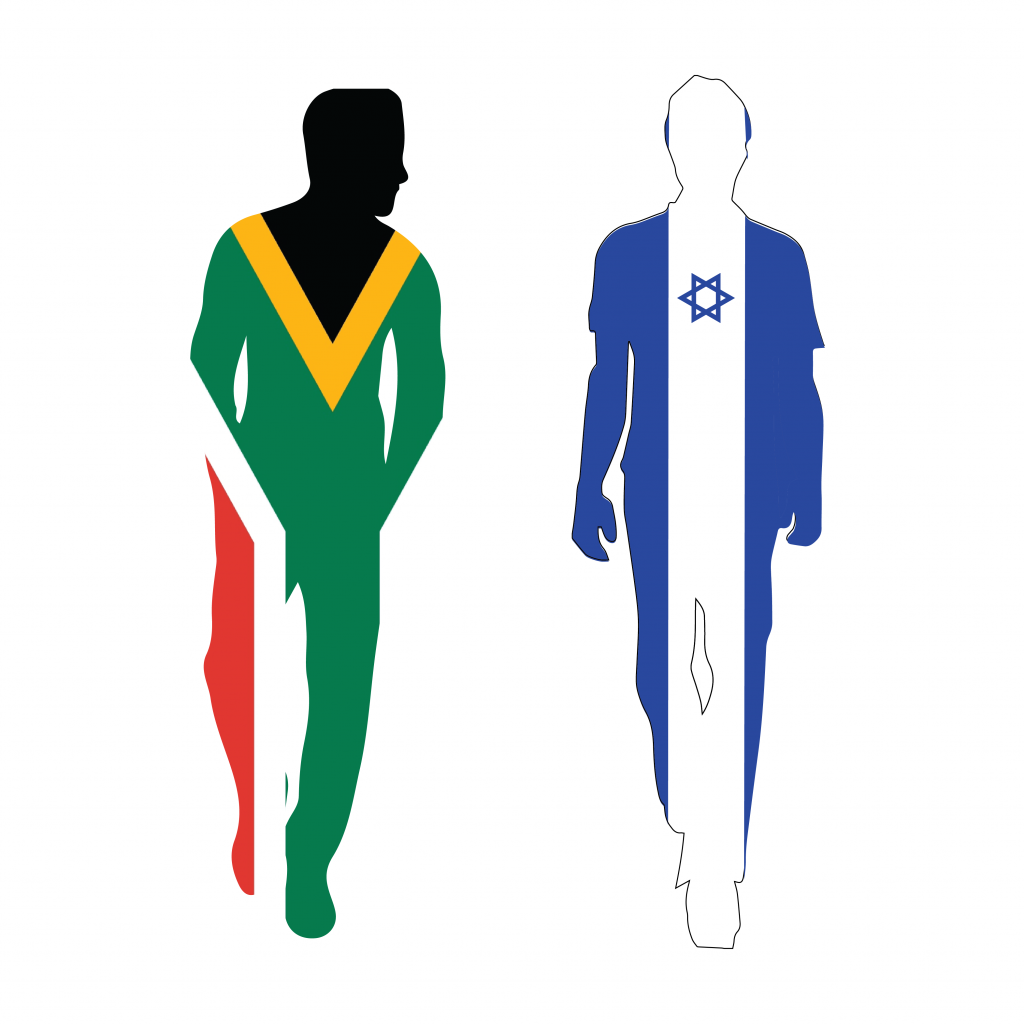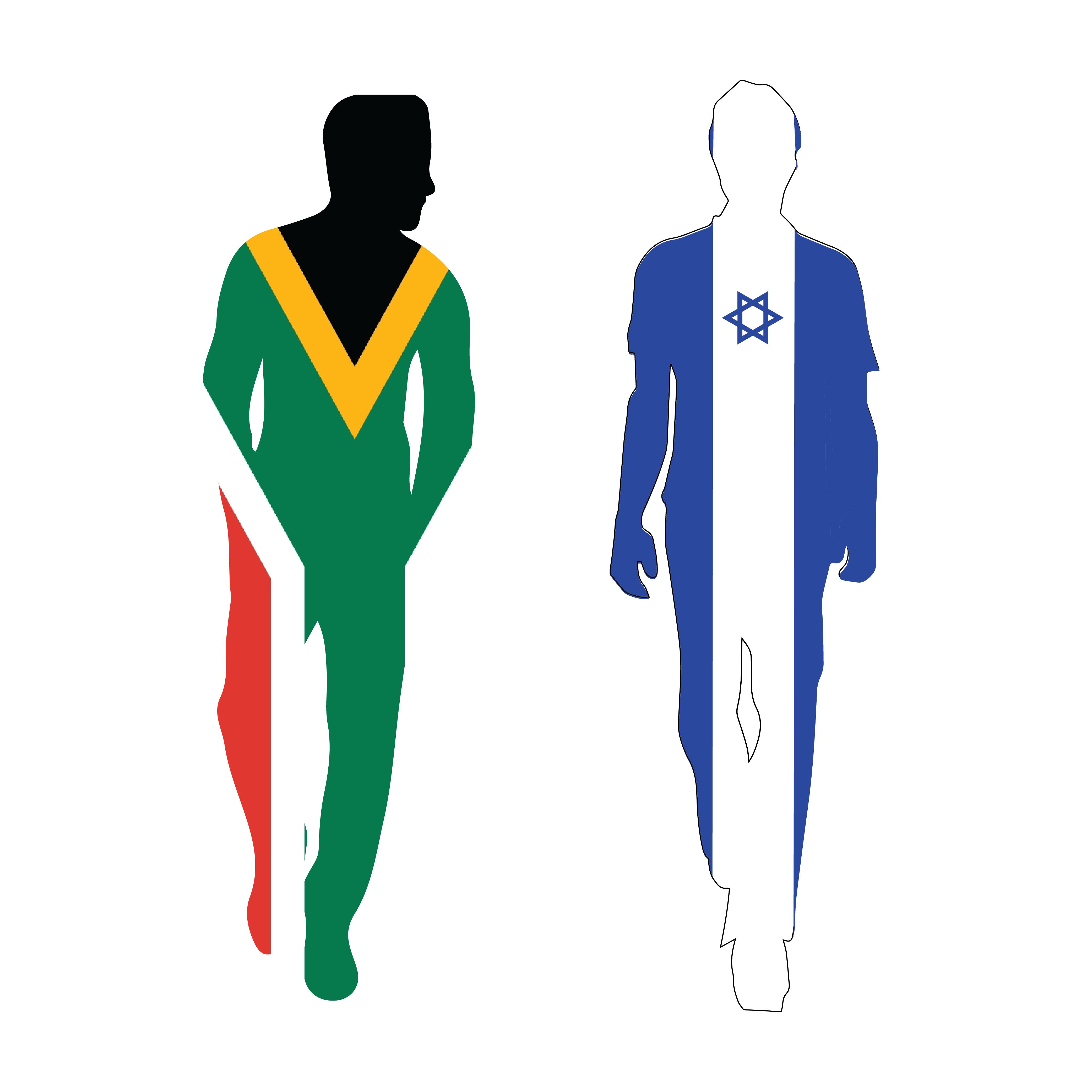

Illustration: Min Lee
Most summer study abroad experiences involve a cushy stay in a beautiful European country. Unfortunately, I did not get the memo. Instead of the scenic Loire valley or Georgetown’s historic villa in Italy, I spent ten days in Israel on a Birthright trip (a free vacation for non-Israeli Jews or people of Jewish heritage) and a month in Cape Town teaching in a township. As I went from Israel’s hot Middle Eastern sun and barren deserts to Cape Town’s cold and rainy mountains, I could not see any parallels between the two countries. I viewed the two nations’ problems as being entirely disconnected from each other. Only after returning from the trips and reflecting on my experiences did I realize how similar the regions and their issues are. Israel and South Africa are connected because they are both highly-segregated areas that struggle with different populations in conflict with each other.
Before traveling to Israel, my knowledge of the nation came from watching CNN and reading the news. I understood the Israeli-Palestine conflict conceptually, but never spent much time learning about it on my own. I went to Israel with the mindset that I was embarking on a fantastic adventure, and I spent my time in the nation happily exploring historical places like the bustling, ancient Jewish Quarter in the old city of Jerusalem and going on fun adventures like floating in the Dead Sea, where I had the experience of literally being unable to submerge myself in the water. I travelled alongside both other Americans as well as Israeli citizens currently serving in the Israeli Defense Forces. As I learned about these soldiers’ lives and culture, I began to view them as the face of Israel. Whenever I saw people that were clearly in the minority in Israel, from Bedouins in the south to Arabs manning their shops in the Arab Quarter of Jerusalem, I thought of them as people that lived in Israel but didn’t really belong as much as the Israelis I was traveling with. I was so enamored with exploring the county that I didn’t reflect on the diverse populations of people living in Israel and what life for them is like. Since the only Israelis I conversed with were Jewish citizens serving in the Israeli Defense Forces, I have no first-hand knowledge of what the lives of various minority groups are like.
After returning from Israel, I worked for a month and prepared to head out to South Africa. Before my trip, I was conscious of the nation’s history as an apartheid state. I had read books about the country and watched the blockbuster hit Invictus, a movie about Nelson Mandela’s first year as president and his relationship with the South African national rugby team, multiple times. During apartheid, different racial groups were forced to live in specifically designated communities. Urban blacks, for instance, were confined to slums called townships. Although all citizens of South Africa can now legally live wherever they want, the townships are still heavily populated by the descendants of the people first forced to move to them.
I taught in a township called Imizamo Yethu, where many of my students didn’t have access to running water and lived in shacks made of scrap metal. They lived in a community with high rates of unemployment and tremendous gang violence. The last week I was there, conflict erupted between two of the most prevalent gangs—the Americans and the Hard Livings—and knifings became a common occurrence throughout the township. Because of this many of my normally cheerful and happy students were anxious and afraid to walk home after school. Meanwhile, only half a mile from where I worked were multi-million dollar houses with pools and access to organic grocery stores and quality private education. I oftentimes felt like I was in two separate countries: the white and wealthy South Africa, and the South Africa where citizens—most of them black—were struggling to get the resources necessary to survive. Even the pictures I took looked like they came from two separate nations. The nation’s ongoing struggles with inequality and segregation were extremely apparent to me the whole trip.
After getting back from both trips, I went out to dinner with family friends and was asked about how the two so-called “apartheid” nations that I had visited were similar to each other.The answer I eventually gave them was that, unlike Israel, South Africa seemed more committed to solving its problems by unifying and going forward as one nation. Nelson Mandela promoted the ideas of forgiveness and unity, and although the current social and economic landscape is still highly unequal, I saw that his ideas were very much alive. Although there is plenty of separation and tension among different racial groups, everyone I met seemed proud to be a South African. Meanwhile, in Israel, I felt there was an emphasis on enacting a two-state solution and moving forward separately in peace. Not all the ethnic and religious groups living in Israel seemed to have the same pride for their country as South Africans did. Many non-Jewish citizens feel that the state does not care about them and they are not true Israelis.
The more I thought about the similarities and differences between the two nations, the more I questioned if that answer I gave has any truth to it. What I have decided is that it is not my place to make broad sweeping generalizations about two complex nations, but instead I should accept them as beautiful places with innate problems with segregation. Time will tell if Israel and South Africa’s approaches to peace and equality will prevail.
Elizabeth Cahan is a sophomore in the College.





Good beginner reading for anyone even attempting to understand the quagmire that is the Middle East conflict: http://www.amazon.com/Complete-Conflict-Edition-Lifestyle-Paperback/dp/1592577911
So to clarify, you traveled Israel, spoke to none of the minority groups living in the country, and then arbitrarily came to the conclusion that they were being oppressed? I’m sorry, but the parallels to apartheid South Africa are simply not there. Arab parties in Israel have over a tenth of legislative representation, a supreme court justice, Arabic is one of the two national languages (with Hebrew), and Arabs in Israel enjoy a significantly higher standard of living than those in any bordering country. If you feel strongly about Israel’s relationship with Palestine, that’s one issue, but using the word “apartheid” to describe essentially the only functioning democracy in that part of the world is absolutely a false comparison.